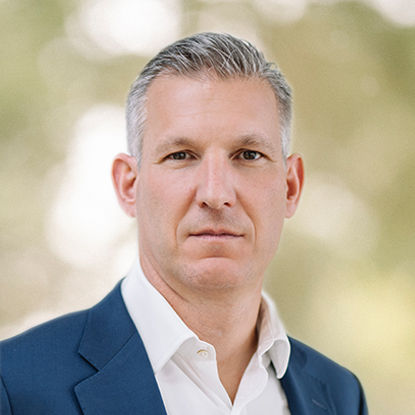
Nestlé Fires CEO Laurent Freixe Over Secret Romance with Employee After Just One Year in Charge
Nestlé's Leadership Crisis: When Governance Meets Romance in Corporate Boardrooms
How an undisclosed relationship toppled the world's largest food company's second CEO in 12 months
VEVEY, Switzerland — In the hushed corridors of Nestlé's lakeside headquarters, where the scent of coffee mingles with the weight of 159 years of corporate tradition, another chief executive has fallen.

Laurent Freixe, the French executive who was handed the keys to the world's largest food company just one year ago amid promises of steady leadership and operational excellence, was dismissed Monday after an internal investigation revealed an undisclosed romantic relationship with a direct subordinate. The swift action marks the second CEO departure in 12 months for the Swiss giant, plunging the maker of KitKat and Nescafé into fresh leadership turbulence at a moment when stability seemed paramount.

The dismissal, announced in a terse statement that landed as European markets prepared to open Tuesday, represents more than a governance housecleaning. For Nestlé—a company that has weathered two world wars, countless recessions, and decades of consumer shifts—the pattern of leadership instability threatens to undermine investor confidence in an enterprise that employs 280,000 people and generates over $100 billion in annual revenue.
The Unraveling of a Carefully Constructed Succession
Freixe's ascension to the corner office in August 2024 was meant to signal stability after the abrupt departure of Mark Schneider, whose eight-year tenure ended amid disappointing financial performance and strategic missteps. The 58-year-old career Nestlé executive brought three decades of institutional knowledge and a reputation for operational discipline that initially reassured investors.

That confidence proved misplaced. According to sources familiar with the matter, internal complaints about Freixe's relationship with a senior marketing and communications manager began surfacing earlier this year. The woman, who had spent 23 years building her career at Nestlé, was promoted to a position directly reporting to Freixe in autumn 2023 when he still led the Latin America division. She departed the company abruptly in June 2025.
The investigation, overseen by Chairman Paul Bulcke and Lead Independent Director Pablo Isla with external legal counsel, concluded that Freixe had violated the company's Code of Business Conduct by failing to disclose the relationship. The breach was particularly egregious given the direct reporting relationship involved—a clear conflict of interest that corporate governance experts say has become a zero-tolerance issue at major multinational corporations.
A conflict of interest arises when an individual's personal interests could potentially influence their professional duties, particularly in corporate governance or the workplace. This includes situations like romantic relationships with subordinates, which can create ethical dilemmas, compromise impartiality, and damage trust.
"This was a necessary decision," Bulcke stated in Monday's announcement, his words carrying the weight of a chairman who had personally championed Freixe's appointment. The understated language belied the gravity of dismissing a CEO for the second time in just over a year.
Coffee Executive Takes the Helm Amid Stormy Seas
Philipp Navratil, the 49-year-old Swiss executive who has spent more than two decades climbing Nestlé's ranks, now faces the daunting task of stabilizing a company beset by multiple challenges. His appointment as CEO represents both continuity and calculated risk—continuity because of his deep institutional knowledge and coffee division success, risk because the scope of global operations far exceeds his divisional experience.

Navratil's track record offers reasons for cautious optimism. As head of Nespresso since July 2024 and previously leader of the Coffee Strategic Business Unit, he has overseen some of Nestlé's most profitable operations. The premium coffee segment, with its high-margin pods and sophisticated marketing machine, represents everything Nestlé hopes to achieve across its portfolio: brand loyalty, pricing power, and sustainable growth.

Yet translating success in coffee's controlled environment to the broader complexities of global food manufacturing presents substantial challenges. Nestlé's portfolio spans infant nutrition, pet care, frozen foods, and bottled water—each with distinct regulatory requirements, consumer dynamics, and competitive pressures.
Broader Challenges Compound Leadership Crisis
The CEO transition occurs against a backdrop of mounting operational and regulatory pressures that would test even the most seasoned executive. French authorities have launched an investigation into Nestlé's bottled water operations, questioning the "natural mineral water" labeling on several brands. Simultaneously, the company faces ongoing scrutiny in the United States following frozen meal recalls that have raised questions about quality control processes.
These external pressures have coincided with disappointing financial performance. During Freixe's abbreviated tenure, Nestlé shares declined approximately 17% while competitors like Unilever saw more modest declines of around 5%. Second-quarter results showed sales volumes contracting 0.4%, reflecting broader consumer headwinds and competitive pressures that have squeezed margins across the food industry.
Nestlé has significantly underperformed Unilever over the past 12 months, driven by guidance cuts, weaker volumes, and negative market reactions, while Unilever’s steady delivery and maintained outlook supported relative resilience.
| Aspect | Nestlé | Unilever | Impact |
|---|---|---|---|
| 12M return | ≈ −15% | Flat to +ve | Nestlé lagged |
| Guidance | Cut outlook twice | Maintained 3–5% USG | Confidence gap |
| Q1 2025 results | Weak volumes | USG +3.0% | Unilever supported |
| Volatility | Sharpe ≈ −0.81 | More stable | Higher risk at Nestlé |
| Market reaction | >5% drop on cuts | Positive re-rating | Diverging sentiment |
| Takeaway | Underperformed | Relatively resilient | Gap driven by delivery & outlook |
Nestlé’s volumes showed tentative stabilization in Q1 2025 (+0.7% RIG) but slipped into contraction in Q2 2025 (−0.4% RIG), with overall H1 2025 volumes nearly flat (+0.2%), driven by Greater China weakness, mixed regional trends, and continued price-led growth.
| Aspect | Q3 2024 | Q4 2024 | Q1 2025 | Q2 2025 | H1 2025 Total | Key Drivers / Context |
|---|---|---|---|---|---|---|
| RIG (Volume Growth) | Weak / Flat | Weak / Flat | +0.7% | −0.4% | +0.2% | Q2 downturn offset Q1 gain |
| Organic Growth | Price-led | Price-led | +2.8% | ~+3.0% | +2.9% | Pricing still dominant |
| Pricing Contribution | High | High | +2.1% | +3.3% | +2.7% | Volumes lagging pricing |
| Regional Highlights | — | — | Europe RIG negative | Europe RIG positive | Europe improving; Emerging mkts RIG −1.1% | Mixed regional momentum |
| Greater China Impact | — | — | Minimal | −40 bps RIG drag | −70 bps OG drag | Key contributor to Q2 slowdown |
| Takeaway | Price-led growth | Price-led growth | Tentative stabilization | Volume contraction | Flat overall volumes | Q2 RIG slip confirmed slowdown |
The confluence of governance failures, regulatory scrutiny, and operational challenges has created a perfect storm that threatens to erode the premium valuation Nestlé has long commanded in global markets.
Governance Revolution in Corporate Boardrooms
The swift action against Freixe reflects a broader evolution in corporate governance standards, particularly regarding executive conduct and workplace relationships. Legal experts note that major corporations have dramatically tightened policies around executive relationships, especially those involving power imbalances.
The rise of "zero-tolerance" policies in corporate governance is increasingly prominent, often adopted by companies to rigorously address executive misconduct. These stringent measures aim to enhance accountability and reflect significant changes in corporate culture, particularly in the post-MeToo era.
Recent precedents across various industries demonstrate that boards are increasingly unwilling to overlook conduct violations, regardless of executive performance or institutional relationships. The era of quietly managing personal indiscretions while preserving leadership continuity has largely ended, replaced by zero-tolerance approaches that prioritize institutional integrity over individual circumstances.
This shift places enormous pressure on corporate leaders to maintain not just operational excellence but impeccable personal conduct. For executives accustomed to wielding significant authority, the new standards represent a fundamental recalibration of acceptable behavior and transparency expectations.
Strategic Continuity Amid Organizational Upheaval
Despite the leadership change, Nestlé's board has emphasized strategic continuity, signaling that major portfolio or operational shifts are unlikely in the near term. This positioning suggests recognition that additional strategic uncertainty could further destabilize investor confidence and operational momentum.
Navratil's coffee background may actually prove advantageous in implementing this continuity approach. The Nespresso business model—combining premium products, direct-to-consumer relationships, and technology-enabled customer experiences—offers a template for modernizing other Nestlé divisions without requiring wholesale strategic overhauls.
Industry analysts suggest that Navratil's challenge will be adapting these proven approaches across dramatically different business segments while maintaining the operational discipline that has made coffee Nestlé's most consistently profitable division.
Market Implications and Investment Considerations
For investors, the leadership transition presents both risks and potential opportunities. The immediate risk lies in further governance revelations or operational disruptions that could compound existing challenges. Markets typically react negatively to unexpected executive departures, particularly when they involve conduct issues rather than strategic disagreements.
However, the appointment of an internal successor with a strong operational track record may limit the downside. Navratil's coffee division has consistently delivered margin expansion and volume growth, suggesting potential for broader application of successful strategies.
The timing of Pablo Isla's scheduled ascension to chairman in April 2026 adds another layer of complexity. Isla, who transformed fashion retailer Inditex during his tenure there, brings fresh perspectives on global retail and consumer engagement that could complement Navratil's operational expertise.

Investment professionals monitoring Nestlé should focus on several key indicators in coming quarters: volume recovery across major divisions, progress on the French water investigation, successful integration of quality control improvements following the US recalls, and evidence that Navratil's coffee-honed strategies can drive performance improvements in other segments.
The company's ability to maintain pricing power while restoring volume growth will likely determine whether the current leadership crisis becomes a transformative opportunity or continues the pattern of underperformance that has plagued Nestlé in recent years.
Corporate Culture at an Inflection Point
Beyond immediate operational concerns, the Freixe dismissal signals a potential cultural inflection point for a company long characterized by conservative Swiss business traditions. The rapid succession of leadership changes, combined with external regulatory pressures, may accelerate modernization efforts that previous management teams approached more cautiously.
This cultural evolution extends beyond executive conduct to broader questions about transparency, accountability, and stakeholder engagement. Nestlé's traditional approach of managing challenges quietly while maintaining steady operations may prove insufficient in an era of heightened regulatory scrutiny and social media-amplified corporate accountability.
The outcome of Navratil's leadership will likely determine whether Nestlé emerges from this turbulent period as a more transparent, agile organization or continues to struggle with the competing demands of global scale and local accountability. For the thousands of employees, millions of consumers, and countless shareholders whose futures intertwine with Nestlé's trajectory, the stakes could hardly be higher.
NOT INVESTMENT ADVICE